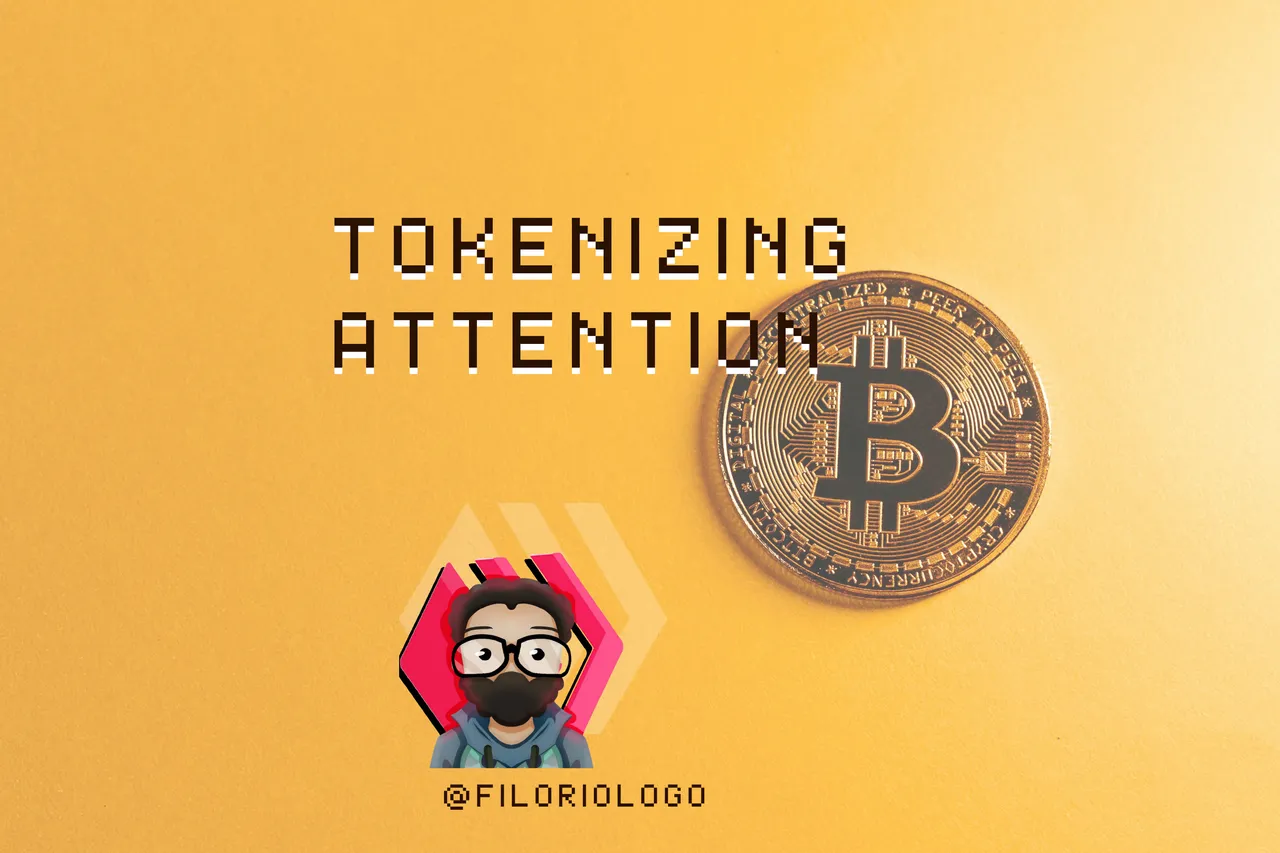La iniciativa propuesta por la comunidad hoy nos plantea uno de los asuntos en los que personalmente considero hay que profundizar y reflexionar con sentido crítico desde las humanidades. Y como miembro de una comunidad que versa sobre las humanidades es preciso detenerse un poco en este tema de la tokenización de la atención.
Creo que en medio del mundo blockchain y web3, el hablar de tokenización parece algo inevitable. Desde cosas tangibles como una obra de arte hasta ideas, hoy por hoy puede comercializarse de manera tokenizada. Pero, ¿qué ocurre cuando pensamos en algo como la atención? ¿Acaso comer, leer, escuchar se puede convertir en un acto económico per se? Creo que para esta pregunta todos conocemos la respuesta.

Source: pexels
No es un secreto que desde el surgimiento de las pantallas, desde el TV hasta los teléfonos móviles, vivimos en una conocida “Economía de la atención”, donde el simple hecho de mirar ya no es simplemente contemplar tal o cual cosa, sino que ahora es un acto de inversión. Y las redes sociales se han edificado para poder explotar ello, pues el “me gusta” o el “Like” se ha convertido en algo más que un gesto. A todo ello se le suma el surgimiento de redes sociales como estas que forman parte del ecosistema blockchain de Hive donde el like ejerce un rol de transacción.
En este sentido creo que la narrativa popularizada en la comunidad no es del todo benéfica en este horizonte de significado, por lo que, personalmente me he comprometido en por lo menos esbozar una cosmovisión que nos permita no solo relacionarnos diferente con el entorno social edificado en blockchain. Sino que podemos resignificar en un sentido verdaderamente humano nuestro habitar entornos digitales.
Pero, para responder a la pregunta antes mencionada, la atención, técnicamente es tokenizable, pero, el hecho de solo pensarlo asoma una grieta, ya que pudiese la atención ser despojada de su esencia. Idea con la que no me siento cómodo. En este sentido, me gusta pensar un poco el asunto desde un par de perspectivas, la de Simone Weil y Byung Chu-Han.
“La atención es la más extraña y más pura forma de generosidad.” Simone Weil
Incluso, Simone llegó a referirse de la atención como oración. Por lo que esto me hace pensar que el hecho de vivir en una época en donde hablamos de una economía de la atención y exista la posibilidad de tokenizar la atención. El hecho de comercializar la atención es reducir algo sagrado en un asunto meramente transaccional. En este sentido hay que repensar el asunto de la web3 y la subjetividad en ella latente. Es sabido que la blockchain propone un entorno descentralizado y esto en teoría eliminaría los intermediarios y hace que las personas recuperen el control, pero, que en la practica puede padecer el riesgo de padecer nuevas formas de performatividad, en donde las personas se convierten en sus propios amos, pues la paradoja del amo y el esclavo de Hegel encarna la realidad en un simple elemento.
Ahora bien, en este sentido hay que repensar las narrativas y echemos un vistazo a Hive, Por ejemplo, es bien sabido que muchas personas se ven afectadas de los juicios de valor sobre el contenido, y se ha extendido a idea de que la calidad en las publicaciones hechas en las redes sociales de Hive es directamente proporcional al incentivo que debería recibirse. En este sentido, no solo producimos contenido sino atención para de ese modo atraer monedas, haciendo que los creadores edifiquen una pregunta: “¿Cuanto vale mi post?” Lo que desplaza el deseo genuino de compartir algo por el mero cálculo económico.
Entonces… ¿Estamos frente a un fetichismo del token? ya que una idea puede ser intercambiable y medible. La crítica que hace Byung Chul Han es que hoy en día nos autoexplotamos en pos de nuestra libertad y en este sentido el entusiasta de las redes de web3 produce contenido con el ideal de monetizar su actividad creadora. Por lo que me pregunto ¿Es necesario cambiar el enfoque?
Considero más que imperativo replantear el rol del creador, y abandonar la idea de la autoexplotación de la atención como una ficha intercambiable por tokens. Ya que esa dirección nos haría caminar al abandono de las blockchain en su ecosistema social.
No creo que abandonar la blockchain sea una idea sensata, ya que genuinamente es un entorno que nos invita a relacionarnos de manera diferente y más humana con lo digital. Considero que un ecosistema como el de Hive es profundamente transformador y poderoso, solo que debemos seguir trabajando por expandir una conciencia crítica y sé de primera mano que muchos en la comunidad lo están haciendo.
El indecible potencial para redistribuir valor, resistir la censura y empoderar comunidades es real, está al alcance de todos, pero, hay que abandonar narrativas que pueden ser nocivas. En ese sentido, considero más que urgente edificar una visión crítica y trascender lo tokenizable.
ENGLISH VERSION
ENGLISH VERSION (click here!)
Tokenizing Attention
The initiative proposed by the community today raises one of the issues on which I personally consider it necessary to deepen and reflect critically from the humanities. And as a member of a community that deals with the humanities, it is necessary to dwell a little on this issue of the tokenization of attention.
I think that in the midst of the blockchain and web3 world, talking about tokenization seems inevitable. Everything from tangible things like a work of art to ideas can nowadays be traded in a tokenized way. But what happens when we think about something like attention: can eating, reading, listening become an economic act per se? I think we all know the answer to this question.

Source: pexels
It is no secret that since the emergence of screens, from TV to cell phones, we live in a well-known “Attention Economy”, where the simple act of looking is no longer simply contemplating this or that thing, but is now an act of investment. And social networks have been built to exploit this, since the “like” or “Like” has become something more than a gesture. Added to all this is the emergence of social networks such as these that are part of Hive's blockchain ecosystem where the like plays a transactional role.
In this sense I believe that the narrative popularized in the community is not entirely beneficial in this horizon of meaning, so I am personally committed to at least outline a worldview that allows us not only to relate differently with the social environment built on blockchain. But that we can re-signify in a truly human sense our inhabiting digital environments.
But, to answer the aforementioned question, attention, technically is tokenizable, but, the fact of just thinking about it shows a crack, since attention could be stripped of its essence. An idea with which I am not comfortable. In this sense, I like to think about the matter from a couple of perspectives, that of Simone Weil and Byung Chu-Han.
“Attention is the strangest and purest form of generosity.” Simone Weil
Simone even referred to attention as prayer. So this makes me think that the fact that we live in an era where we talk about an economy of attention and there is the possibility of tokenizing attention. The fact of commercializing attention is to reduce something sacred in a merely transactional matter. In this sense it is necessary to rethink the issue of the web3 and the subjectivity latent in it. It is known that the blockchain proposes a decentralized environment and this in theory would eliminate intermediaries and makes people regain control, but, that in practice may suffer the risk of suffering from new forms of performativity, where people become their own masters, as Hegel's paradox of master and slave embodies reality in a simple element.
For example, it is well known that many people are affected by value judgments on content, and the idea has spread that the quality of publications made on Hive social networks is directly proportional to the incentive that should be received. In this sense, we not only produce content but attention to thereby attract coin, causing creators to construct a question, “How much is my post worth?” Which displaces the genuine desire to share something by mere economic calculation.
So... Are we facing a token fetishism, since an idea can be interchangeable and measurable? Byung Chul Han's criticism is that today we self-exploit ourselves in pursuit of our freedom and in this sense the web3 network enthusiast produces content with the ideal of monetizing his creative activity. So I ask myself, is it necessary to change the approach?
I consider it more than imperative to rethink the role of the creator, and abandon the idea of self-exploitation of attention as a token exchangeable for tokens. Since that direction would make us walk to the abandonment of blockchain in its social ecosystem.
I do not think that abandoning the blockchain is a sensible idea, as it genuinely is an environment that invites us to relate differently and more humanely with the digital. I consider an ecosystem like Hive to be profoundly transformative and powerful, we just need to keep working to expand critical awareness and I know first hand that many in the community are doing so.
The untold potential to redistribute value, resist censorship and empower communities is real, it is within everyone's reach, but, we must abandon narratives that can be harmful. In that sense, I consider it more than urgent to build a critical vision and transcend the tokenizable.
Translated with DeepL.com (free version)
Si deseas apoyar mi trabajo acá puedes enviar un tip
If you wish to support my work here you can send a tip.
HIVE/HBD: filoriologo
LEO: filoriologo
Bitcoin Lightning Network: fretfulcoffee45@walletofsatoshi.com
Bitcoin: 1Sarz4FYPMDGmEUL8DsAQYHKZSVazAaFk
USDT(TRC20): TFa11YSZ77XPH56XiSqseHLms6LAzjcAkv
BINANCE ID: 4072493

| X | Instagram | Medium |Telegram | LinkedIn | INLEO |